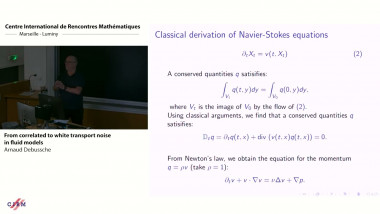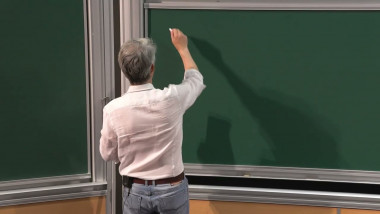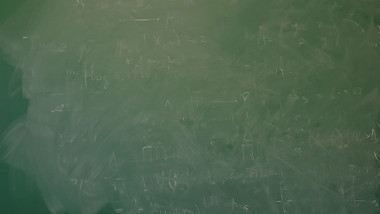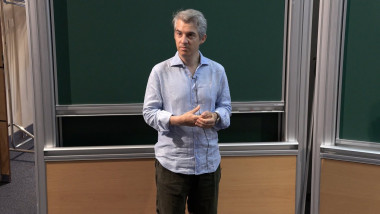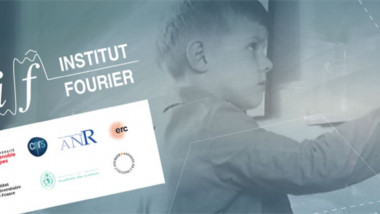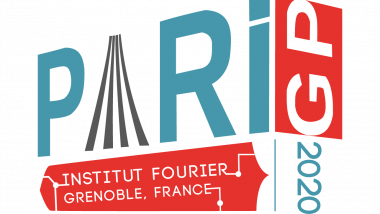Appears in collections : 6th France-Israel conference in neuroscience: the power of mathematics in contemporary neuroscience / 6ème colloque franco-israelien en neurosciences : repenser le rôle des mathématiques en neurosciences, Exposés de recherche
Start the video and click on the track button in the timeline to move to talk 1, 2 and to the discussion.
- Talk 1: Paul Apicella - Striatal dopamine and acetylcholine mechanisms involved in reward-related learning
The midbrain dopamine system has been identified as a major component of motivation and reward processing. One of its main targets is the striatum which plays an important role in motor control and learning functions. Other subcortical neurons work in parallel with dopamine neurons. In particular, striatal cholinergic interneurons participate in signaling the reward-related significance of stimuli and they may act in concert with dopamine to encode prediction error signals and control the learning of stimulus–response associations. Recent studies have revealed functional cooperativity between these two neuromodulatory systems of a complexity far greater than previously appreciated. In this talk I will review the difference and similarities between dopamine and acetylcholine reward-signaling systems, the possible nature of reward representation in each system, and discuss the involvement of striatal dopamine-acetylcholine interactions during leaning and behavior.
